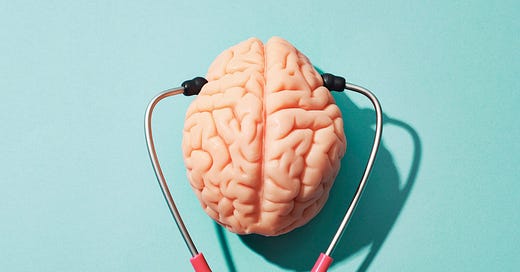You may have heard some menopause influencers claiming that menopause hormone therapy (MHT) is indicated to prevent dementia. You may even have heard that MHT reduces the risk of dementia by 22-32%. I decided to take a deep dive into the data on dementia because I am hearing more and more from women who have been made to feel afraid or anxious for their brains because they are not taking estrogen. I am also hearing from women taking aromatase inhibitors for breast cancer who are terrified they are going to get dementia or AD.
A recurring theme in this post is that “we don’t know what we don’t know,” and people (by people, I mean so-called menopause influencers) should be careful about assuming that their “all brains need MHT” hypothesis is valid. A hypothesis is a starting point for more exploration. There is an especially long and tragic history of hypothesis-straight to prescription pipeline in women’s health. Until a hormone (or any medication) is appropriately tested for an indication, we don’t know which one could be the next diethylstilbestrol (DES), a synthetic estrogen that was given for preventing miscarriage, that proved to be harmful during pregnancy and which one could be the next drospirenone, a progestin that is very effective at preventing ovulation giving us more options for estrogen-free hormonal contraception.
The hormone-brain health connection is a new field, and while it’s awful that it’s taken this long, we must let the research unfold. One issue that we have now that we did not 20 or so years ago is the way new papers are being dissected on social media. Before the advent of social media, an interesting basic biology paper would be discussed at meetings and eventually percolate its way through the research pipeline. Now, some people are presenting basic science studies or observational data as something that should change the way physicians prescribe, which isn’t appropriate. There is also a lot of cherry-picking. I’ve seen menopause influencers make videos claiming a paper says one thing, and yet the article that appears in the background doesn’t conclude what they claim.
This is a longish post, but if you just want the summary, head straight to the section towards the end, “Premature Menopause/Primary Ovarian Insufficiency is Different,” and read on from there. I also include a summary at the end of the article with all the major guidelines from different organizations about hormones and dementia.
Some Basic Background
The most common type of dementia is Alzheimer's dementia (AD), and most studies
Keep reading with a 7-day free trial
Subscribe to The Vajenda to keep reading this post and get 7 days of free access to the full post archives.




